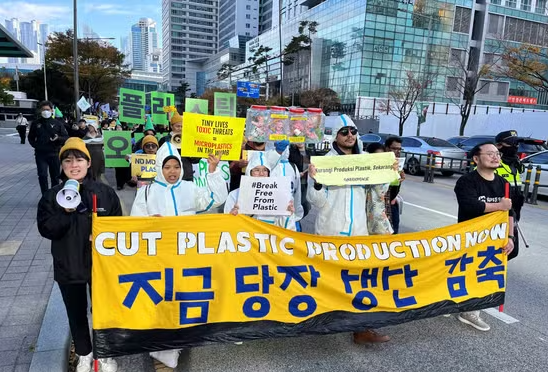In South Korea, plastic films are omnipresent in food packaging, gifts, and online orders. The country, which is hosting the UN conference in Busan to finalize a global treaty aimed at ending plastic pollution, is itself lagging behind in addressing this issue.
At the Ops bakery in Seoul, a well-known brand since 1989 located in the Lotte department store basement, customers can choose from tempting cakes, sandwiches, and breads. After making a selection, they head to the checkout, where each item is wrapped in plastic bags, even though many of them were already individually wrapped in plastic. This is not unique to Ops—other chains like Paris Baguette and Paris Croissant follow the same practice, with cakes often sealed in plastic containers that contain individually wrapped treats.
It is an understatement to say that South Korea consumes plastic, especially for food, gifts, and online orders. The country’s plastic waste production surged from 9.6 million tons in 2019 to 12.6 million tons in 2022, a 31% increase in just three years. This raises questions as the fifth round of UN negotiations for the global treaty to end plastic pollution, known as the Intergovernmental Negotiating Committee (INC-5), takes place in Busan from November 25 to December 1.
Nara Kim, head of the plastics campaign at Greenpeace Seoul, emphasizes that « To meet our climate goals and solve the plastic crisis, the only solution is to reduce plastic production. »
President Yoon Suk Yeol, during the G20 summit on November 19, promised to support the conclusion of the treaty, stating that “efforts to reduce plastic pollution must be made” for sustainable development.
Source: le monde


